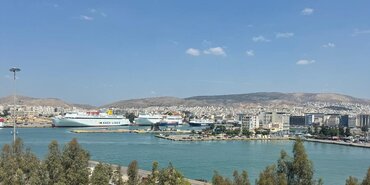New evidence destroys opinion
A firm of marine engineers regularly acted as experts in court proceedings.
They had been approached by solicitors to assist in a potential claim relating to the engines of a pleasure craft. The boat sank at a river mooring some three years earlier. She was recovered and sent to a boatyard on the coast for repairs. The vessel was placed in the water during the repair process. Water was found to be leaking in through the stern rubber tubes. Some three months later, during further sea trials, the starboard engine lost power and was subsequently found to have suffered serious damage. The cause of that damage was the subject of the owners claim against the yard.
The engineers were instructed to inspect the engines some 18 months after the sea trails. At that stage, they had been lying stripped down in the yard for a considerable period. During the next six months the members received further information from the solicitors acting for the claimant. This included a report that a considerable amount of water had entered the engine compartment when the yard had placed the vessel in the water. On the basis of this information and their inspection of the stripped down engine, the members reached the conclusion that the damage was caused by salt water. That meant that the damage could be traced to being the responsibility of the yard (based at seaside) and not anything to do with the earlier sinking in freshwater. The claimant armed with this opinion issued proceedings against the yard.
The case proceeded and some while later the member received a copy of the report by the expert retained by the opponents. This contained much that was new to them. They discovered that the other expert had inspected the engines at an earlier date than they had been able to. In fact, while they were still in the vessel.
At a subsequent without prejudice meeting between the experts, further evidence was produced including photographs of the engine compartment and more importantly, the result of oil samples from the gearboxes.
The result of this evidence was that the member concluded that the engine compartment had not been subjected to the degree of flooding suggested in their instructions. In the circumstances, they felt that they could no longer justify continuing to allege that the damage was certainly caused by exposure to salt water. The result was that the claimant’s case collapsed entirely and the claimant had to pay the opponent’s costs.
The experts later received a letter from the same solicitors claiming that the original advice had been negligent and the alleged losses as a result of abandoning the lawsuit were stated to be over £100,000.
ITIC drafted a message rejecting the claim on the basis that the expert had not been negligent when advising on the evidence provided to them. The instructions had over stated the extent of the flooding. Ultimately the allegations were not pursued.
- Date
- 28/11/2018





